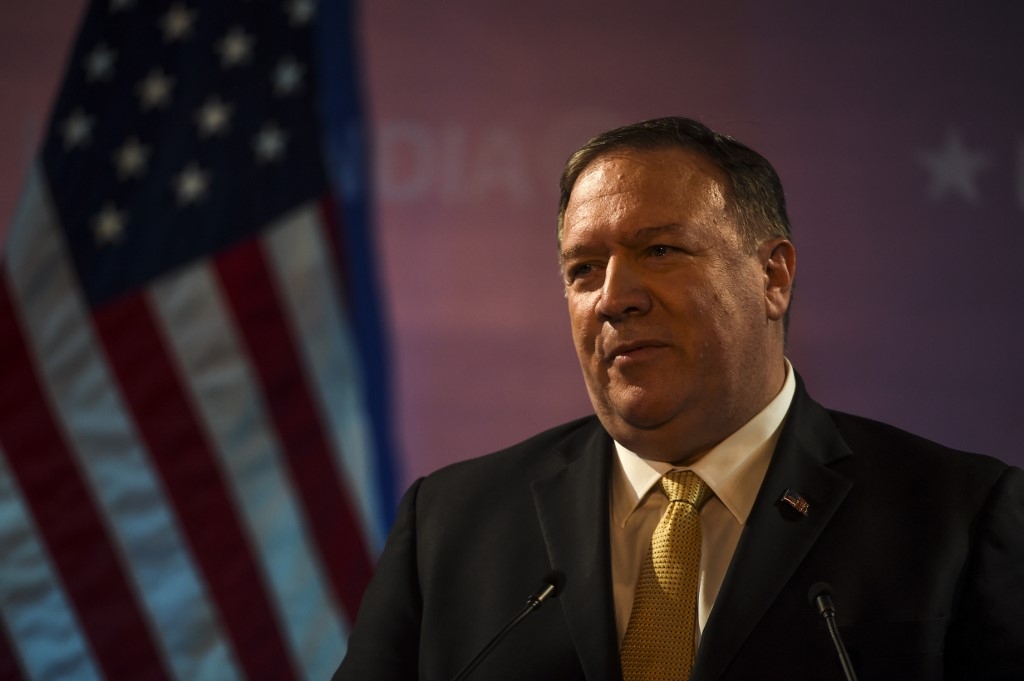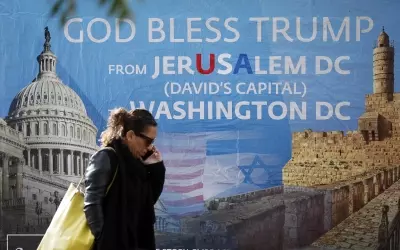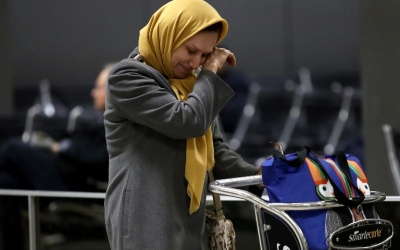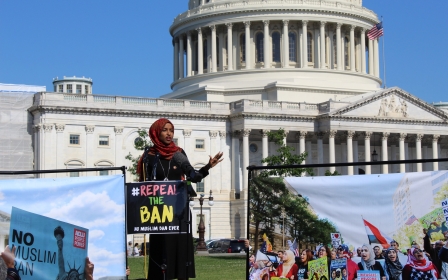Canadian Muslim group declines invitation to attend US summit on religious freedom

A prominent Canadian Muslim advocacy group has declined an invitation to attend an upcoming US government conference on religious freedom because of President Donald Trump's travel ban of several Muslim-majority countries.
The National Council of Canadian Muslims (NCCM) on Monday called the Trump administration's three-day summit, dubbed the Ministerial to Advance Religious Freedom, a "betrayal" of its principles.
"We cannot attend while Executive Order 13780 and subsequent presidential proclamations (better known as the 'Muslim Ban') remain in effect," NCCM Executive Director Mustafa Farooq said in a letter shared on social media.
"We believe in standing by our principles. We believe in non-partisan, common-sense policy to combat racial discrimination in our society."
The group also cited the crisis at the US-Mexico border, where American authorities have separated child asylum seekers from their parents, as another reason not to attend.
New MEE newsletter: Jerusalem Dispatch
Sign up to get the latest insights and analysis on Israel-Palestine, alongside Turkey Unpacked and other MEE newsletters
US Secretary of State Mike Pompeo will host the religious freedom conference.
Set to begin on 16 July, it will feature more than 1,000 civil society groups, the State Department said in late June.
The summit aims to "identify concrete ways to combat religious persecution and discrimination, and ensure greater respect for freedom of religion or belief".
The three-day conference will include an array of panels, from "combatting the rise of anti-Semitism and anti-Islamic behavior" to "countering violent extremism".
Other Muslim advocacy groups, such as the Council of Islamic-American Relations (CAIR), have not commented on whether they were invited or planning to attend.
Conservative leaders
Trump's government has placed an emphasis on elevating religious freedom as part of its human rights policy, which critics say aims to placate conservative Christians, many of whom have senior government positions.
Last week, Pompeo announced the creation of a new US human rights body called the "Commission on Unalienable Rights".
Mary Ann Glendon, a conservative Harvard law professor who has made public statements against abortion and gay marriage, will head the commission.
Another member of the commission, Peter Berkowitz, has argued that human rights are derived from Christianity, while prominent Islamic scholar Hamza Yusuf's decision to join the new commission has been widely criticised.
Last month, Pompeo moved the Office of International Religious Freedom out of the State Department's human rights bureau and made it a separate entity.
Trump's religious freedom envoy, former Kansas governor Sam Brownback, has a track record of pushing a Christian agenda in Kansas politics, rejecting Syrian refugees and throwing his weight behind state legislation condemning Islamic law.
In 2012, he signed what had been dubbed the controversial "sharia bill", which was aimed at keeping state courts and agencies from using the Islamic legal code and other non-US laws when making decisions.
Trump's 'Muslim ban'
While running for president, Trump in 2016 advocated for a "total and complete shutdown of Muslims" coming to the US.
In 2017, Trump signed an executive order severely restricting travel from a host of Muslim-majority nations: Iran, Libya, Somalia, Syria, Iraq and Yemen.
But in March of that year, Trump signed what would become known as the "second Muslim ban", taking Iraq off the list of countries subject to the decree. Baghdad agreed to start accepting deportees from the US in exchange for the move.
The deal also allowed the administration to round up dozens of Iraqi Christians who had outstanding deportation orders in the US, even as they argued that sending them back to Iraq could amount to a "death sentence".
A contentious court battle took place for more than a year against the "Muslim Ban", until the US Supreme Court upheld the policy in June 2018, ruling in favour of executive power to control immigration.
Two years later, families have been torn apart, people haven't received much-needed healthcare, and students have been prohibited from attending school in the US as a result of the "Muslim Ban", advocacy groups have said.
US State Department data shows that only 819 Yemenis were granted "immediate relative visas" to join their families in the US in the fiscal year 2018. That is a stark drop from the 8,447 visas issued in 2016, President Barack Obama's last year in office.
Middle East Eye delivers independent and unrivalled coverage and analysis of the Middle East, North Africa and beyond. To learn more about republishing this content and the associated fees, please fill out this form. More about MEE can be found here.






